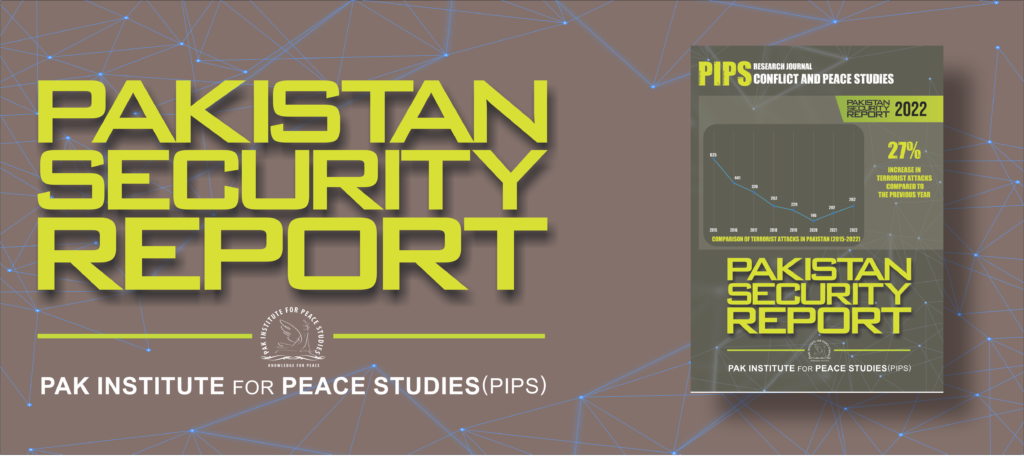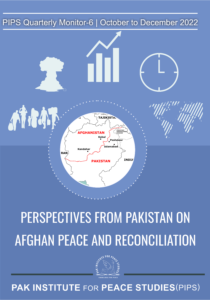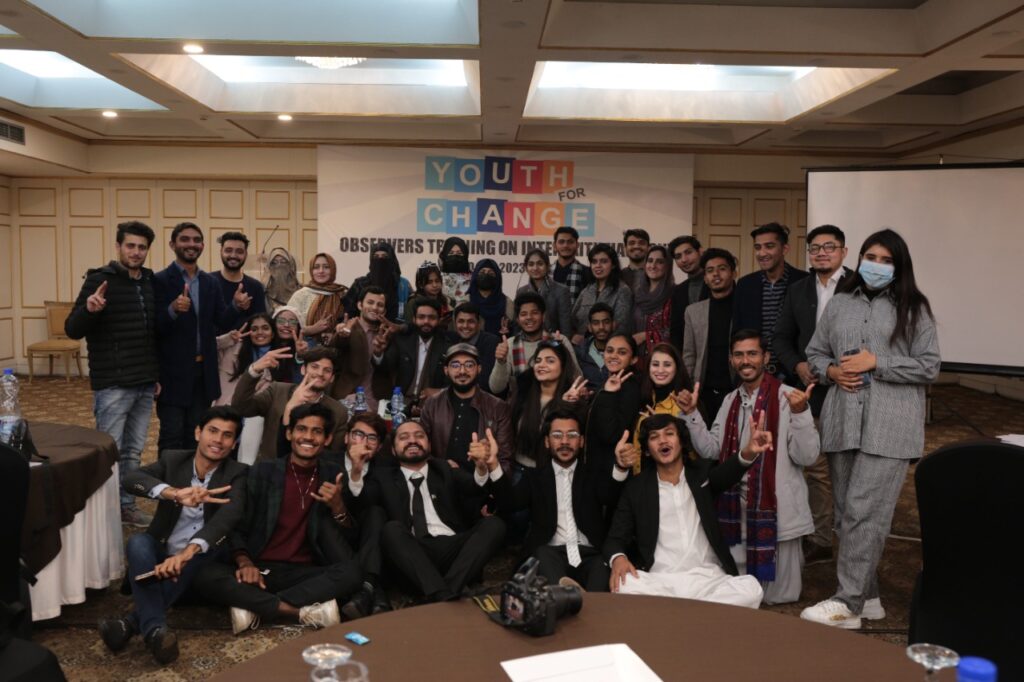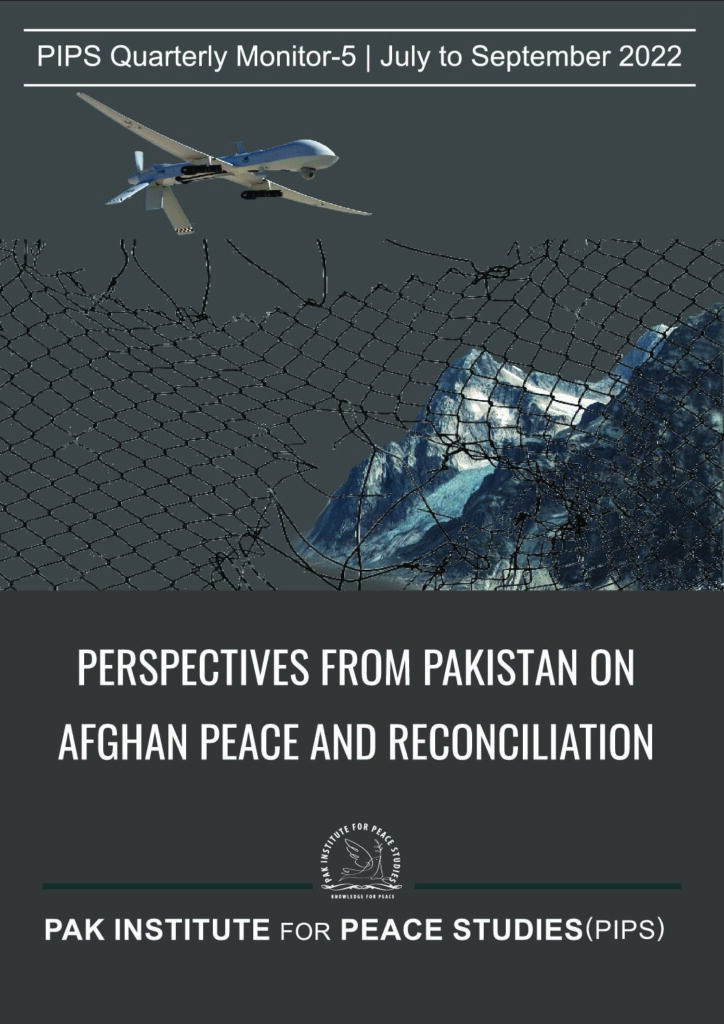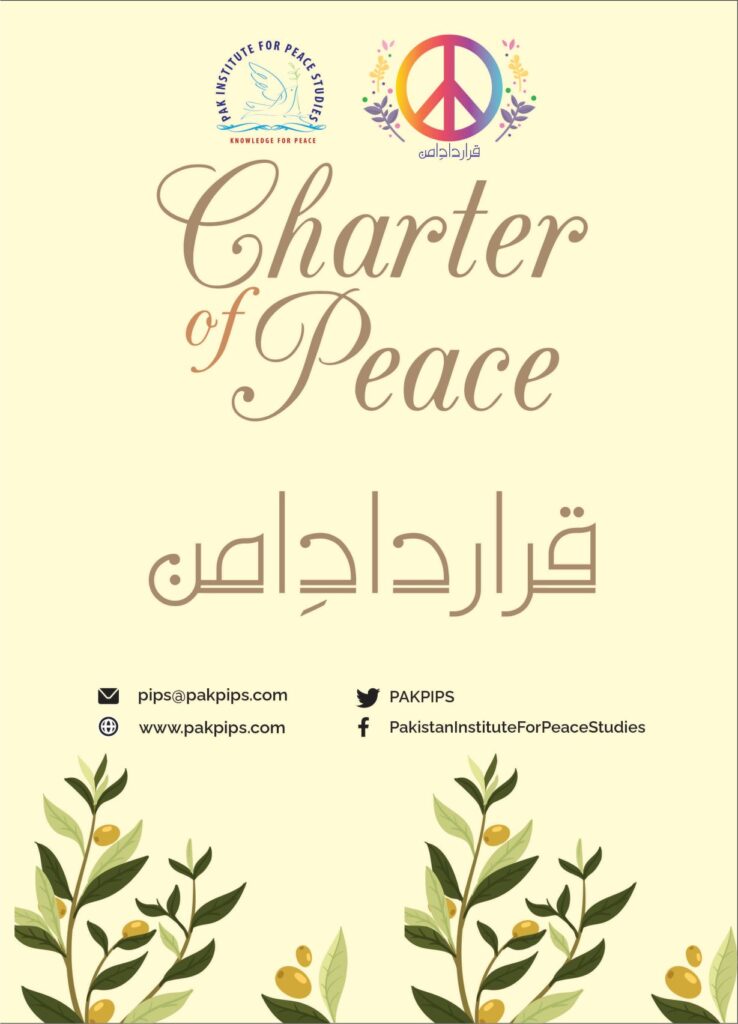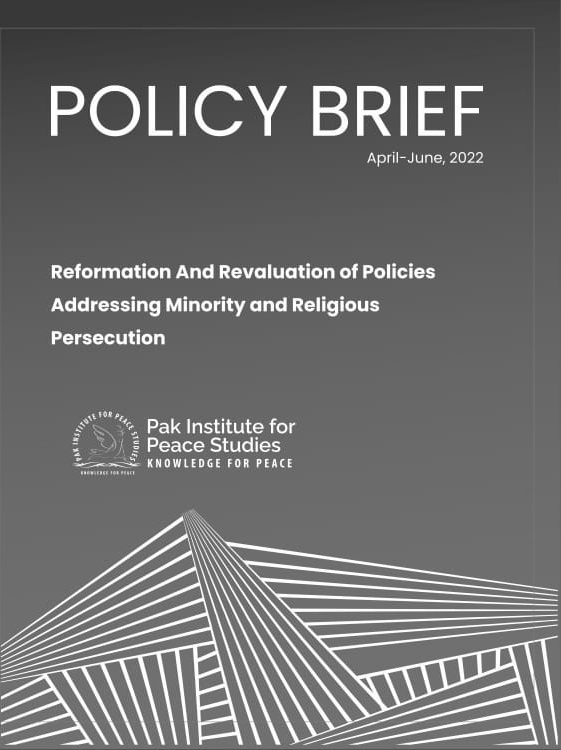Events
Pakistan’s Evolving Militant Landscape: State Responses and Policy Options
Pak Institute for Peace Studies (PIPS) launched its research report ‘Pakistan’s Evolving Militant Landscape: State…
PIPS CONSULTATION-12 ON AFGHAN PEACE & RECONCILIATION
Pak Institute for Peace Studies convened its 12th quarterly consultation on "Afghan peace and reconciliation:…
PIPS CONSULTATION-11 ON AFGHAN PEACE & RECONCILIATION
Pak Institute for Peace Studies organized 11th quarterly consultation on “Afghan peace and reconciliation:…
PIPS CONSULTATION-10 ON AFGHAN PEACE & RECONCILIATION
Pak Institute for Peace Studies organized 10th quarterly consultation on “Afghan peace and reconciliation:…
Papers
Faith and faction: internal conflicts among Afghan Taliban
1. Introduction
In the heartland of Taliban’s Afghanistan, discord over how to run the country plagues the…
Finding a new equilibrium in Pakistan-Afghanistan relations
Pakistan and Afghanistan are two inter-connected neighboring countries. For centuries, the people of the two…
The emerging role of India in Afghanistan: Pakistan’s concerns and policy…
1. Introduction and historical background
India has remained a key factor in Pakistan's Afghan policy. Bilateral…
Pakistan’s perspective on Chinese engagement with the Taliban-led Afghanistan
Over the past couple of decades, bilateral relations between China and Afghanistan have evolved from being…



